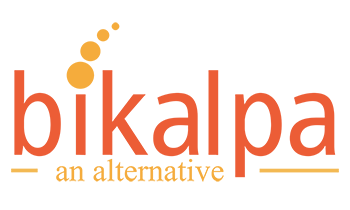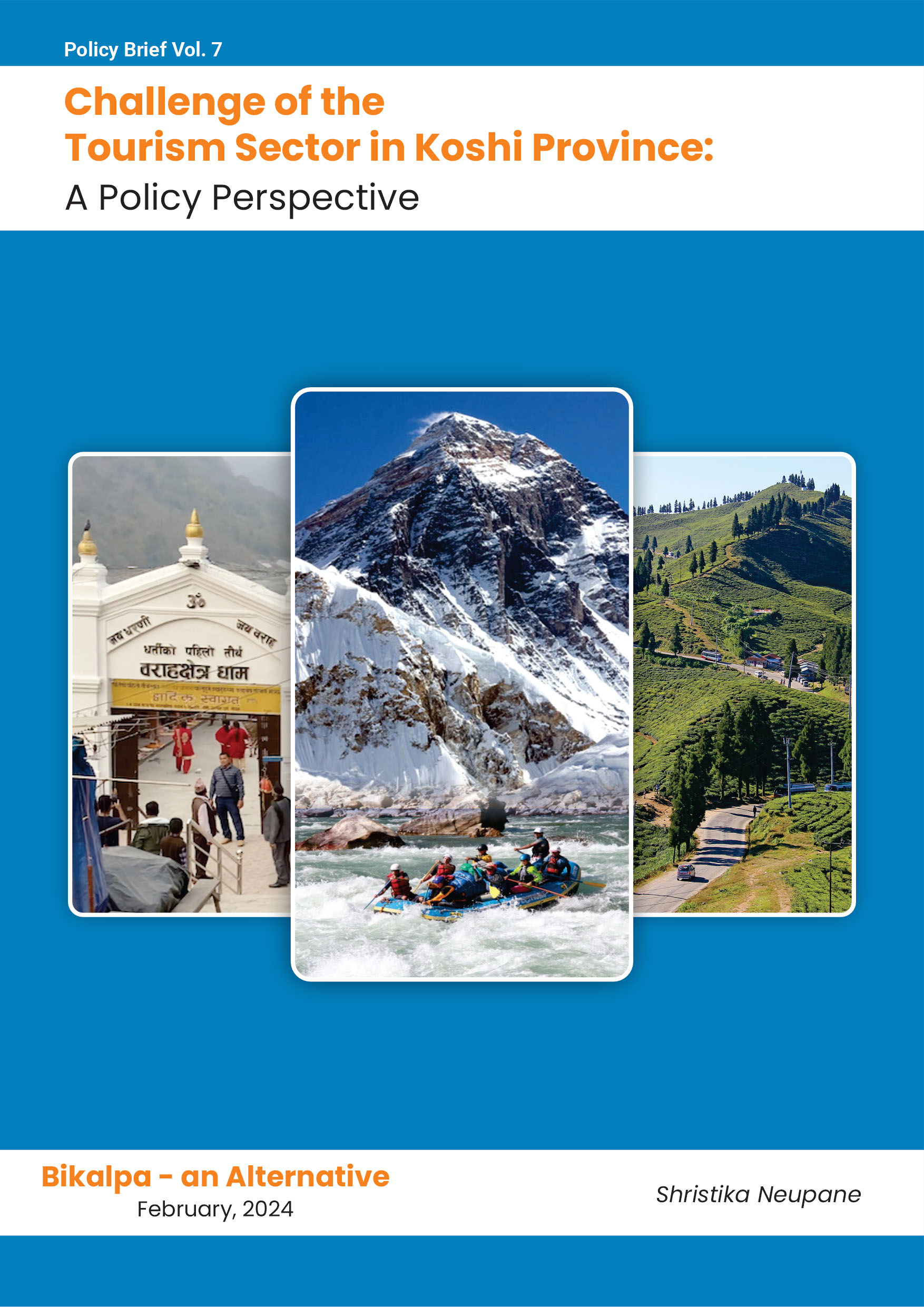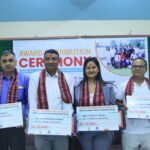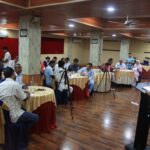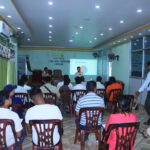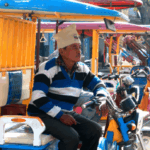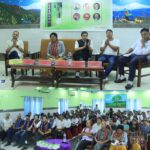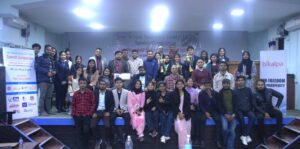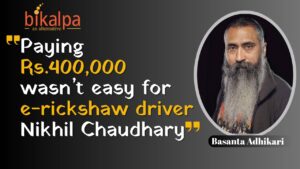Asia Liberty Forum Online 2021 was cohosted by Bikalpa – An Alternative in association with Atlas Network dated on the 24th and 25th of June 2021. The forum was an opportunity to bring the freedom-loving individuals together from all over Asia to discuss the existing challenges in the region, and highlight civil society efforts that guide public policy in the direction of freedom and prosperity.
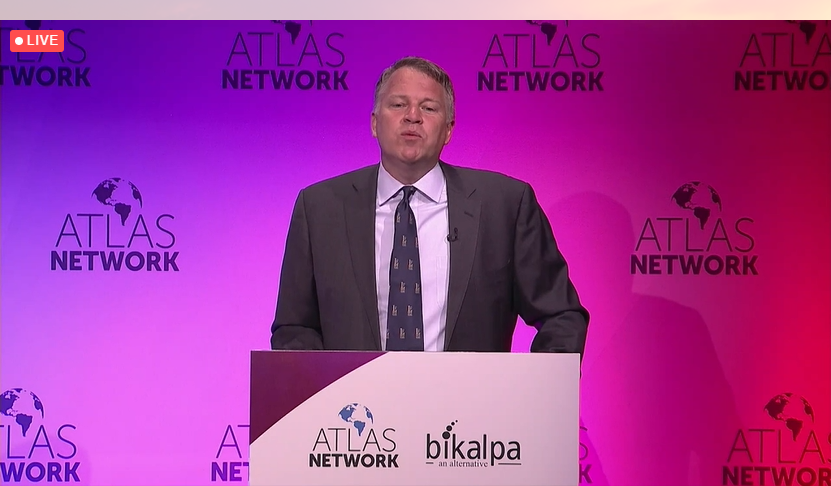
Atlas Network CEO Brad Lips inaugurated the program with a welcome note, inviting attendees to meet via online platforms that offer live and breakout sessions, chat rooms, and other features to continue conversations. Following Brad, Basanta Adhikari Director of Bikalpa an Alternative delivered the Opening remarks, where he shared how the Asia Liberty Forum has inspired him to be a part of the liberty movement.

The first session was on the “Effects of Covid-19 on Personal Liberty and Economic Freedom” which highlights how the pandemic has increased the government’s role in restricting the personal and economic liberty of individuals in the name of curbing the spread of infections. Alex Cordell from Atlas Network moderated the session where Kristine Alcantara from Foundation for Economic Freedom, Philippines, Gideon Rozner from Institute of Public Affairs, Australia, and Lakshmi Sampath Goyal from Centre for Civil Society, India was a session panelist.
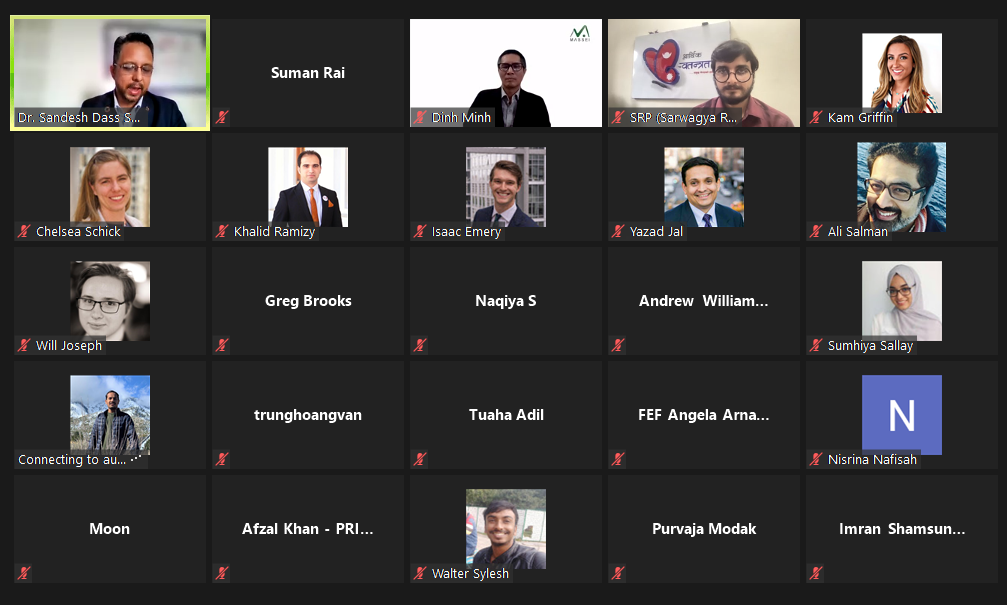
During the second session on “Overcoming Challenges to Advance Economic Freedom”, the speakers talked about how the unprecedented global economic recession has affected the promotion of personal liberty and economic freedom and ways to ensure economic freedom in such an environment where the notion of liberty is difficult to preach. Dr. Sandesh Das Shrestha Director of Bfm moderated the session, where Mohammad Khalid Ramizy from Afghanistan Economic and Legal Studies Organization, Dinh Tuan Minh from Market Solutions Research Center for Social and Economic Issues, Vietnam, and Sarwagya Raj Pandey from Bikalpa – an Alternative were as a panelist.
Mr. Ramizi discussed the challenges faced by AELSO in promoting liberty in the country as it transitions after a long war of attrition. Mr. Pandey mentioned the strategies used by Bikalpa – an Alternative to popularize the notion of economic freedom to the younger generation in Nepal while Mr. Dinh stressed the need to strengthen legal and property rights to ensure economic freedom in Vietnam.

The third session was on “Improving Governance for More Freedom and Prosperity.” The session highlighted how good governance helps in promoting economic freedom, which in turn helps in poverty alleviation in emerging and developing economies for which rule of law and governance is essential. Dr. Tom Palmer from Atlas Network moderated the session. Mr. Dharmarajan Dhanuraj from the Center for Public Policy Research, India, Mr. Deependra Chaulagain from Samriddhi Foundation, Nepal, and Ali Salman from Prime, Pakistan as the panelists.
Mr. Dharmarajan Dhanuraj said that the threat of government prosecution is always present in India. “You could be taken to prison. There is no due process. So that is where the police reform starts.” Mr. Deependra Chaulagain from Samriddhi Foundation stressed the need for reforms in public service delivery in order to spearhead meaningful reforms. Mr. Ali Salman meanwhile talked about the need to strengthen the institutions.
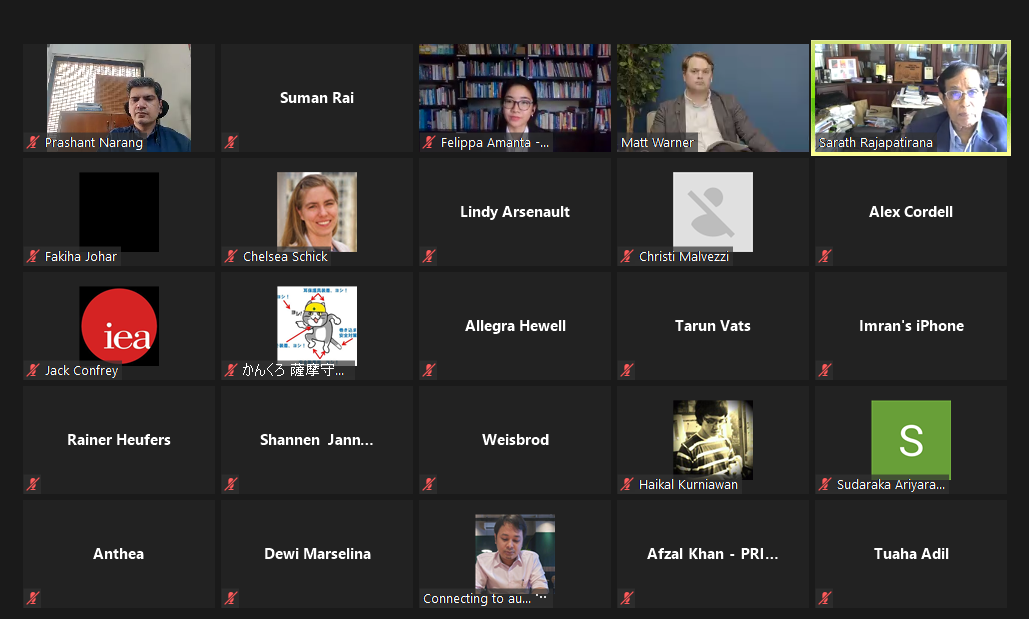
The fourth session focused on the topic “Instead of Aid, Why Not Trade?”. The discussion touched upon the Importance of trade for developing nations who have been beneficiaries of foreign aid but haven’t escaped from poverty. The discussion also highlighted how developing countries benefit from participating in global trade despite a mixed record of donor country free trade-friendly policies. Mr. Matt Warner from Atlas Network, United States, moderated the session. Mr. Prashant Narang from Centre for Civil Society, India, Dr. Sarath Rajapatirana from Advocata Institute, Sri Lanka, and Ms. Felippa Amanta from the Center for Indonesia Policy Studies, Indonesia were a session panelist.
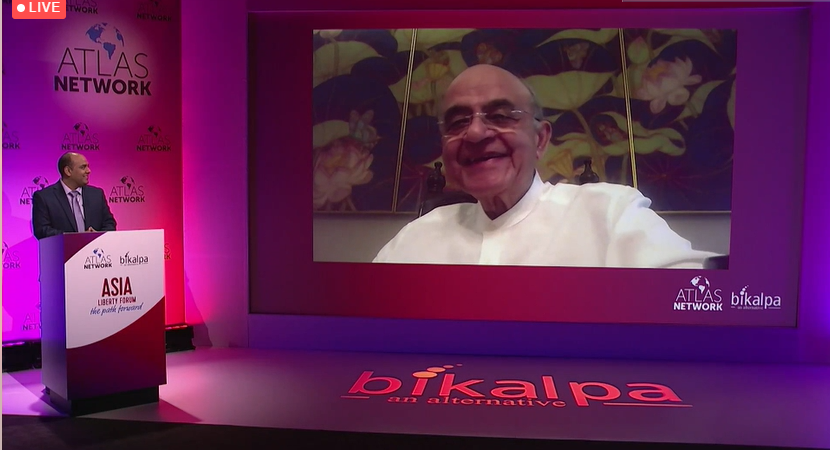
The final session of the first day was with Indian Author, and Public Intellectual Gurcharan Das on “How Should Governments & Institutions Respond to Crises?” Where he said, “Yes, free markets do tend to cause inequality, and yes, inequality is not good, especially when it results in loss of self-esteem. But the mistake we make is to worry too much about the wrong kind of inequality.”
Finally, During the closing session of Day One of the 2021 Regional Liberty Award was presented to the Centre for Civil Society for their project on “Making a Living on the Street: Law, Liberty, and Livelihood” which aims to improve the lives—and protect the rights—of street vendors in India.
Day Two of the virtual forum program started with the prestigious “Think Tank Shark Tank Competition”. The participants from different countries presented their project ideas to a panel of judges. Each person was given a 5-minute project pitch followed by a Q&A session with the judges. During the program, Jeffrey Ng Cathay Land, Inc., from the Philippines, Rajesh Jain from Net core Solutions, India, and Simon Lee from AdvB Public Affairs Consulting, Hong Kong were the panel of judges.

Similarly, Nur Zulaikha Azmi from IDEAS, Malaysia, Sathya Karunarathne from Advocata Institute, Sri Lanka, And Andree Surianta (CIPS, Indonesia) were contestants of Think Tank Shark Tank competition 2021. Sathya Karunarathne of Advocata Institute won the 2021 Asia Think Tank Shark Tank competition for her proposed “Economic Freedom for Her” initiative, which has taken aim at the legal discrimination that holds back Sri Lankan women.
The second session was a breakout session on “An Introduction to Strategic Planning with Atlas Network Academy.” This session was facilitated by Atlas Network’s Lindy Arsenault and co-facilitated by Luis Miranda from the Centre for Civil Society, India. The session was on knowing the basics of strategic planning for the organization, working with a local expert, and putting those skills into practice by conducting a regional analysis and creating a way forward.
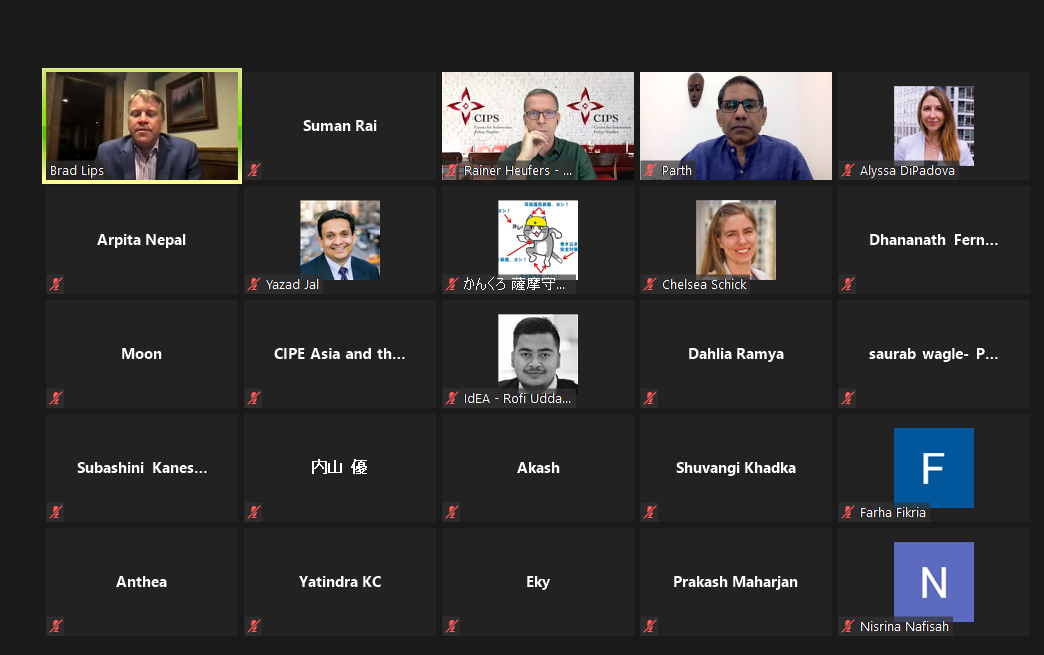
The other breakout session was on the topic of ” Liberalism and the Free Society 2021 and its implications for Asia”. During the session, Brad Lips, CEO of Atlas Network, presents findings from the Global Index of Economic Mentality, a new tool for measuring public sentiment about economic freedom throughout the world, and interviews classical liberal thought leaders on the challenges in six regions. Arpita Nepal from Samriddhi Foundation, Nepal, Rainer Heifers from Center for Indonesian Policy Studies, Indonesia, and Dr. Parth Shah from Centre for Civil Society, India, put their insights regarding the book and stressed the role of government and civil society in the current pandemic situation country.
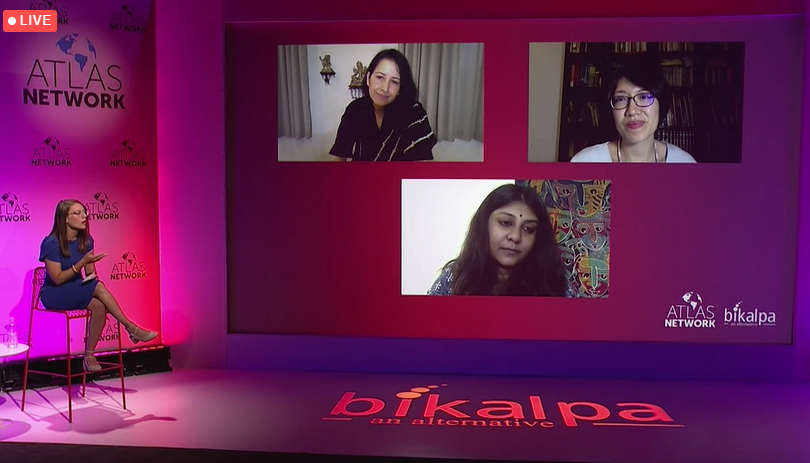
The final day closing session was on “Conversation on Women’s Business in Asia.” The discussion panel talked about advocating for more economic liberalization for women in Asia, where they shared stories from women working to improve the lives of millions every day. During the conversation, Bhuvana Anand of India’s Trayas Foundation shared “Globally, women on average have about three-quarters of the legal standing that men have. That should make us sit up and worry.” Also, Tricia Yeoh, CEO of IDEAS Malaysia mentioned, “In Malaysia, women do actually represent quite a high percentage of the workforce. However, when you look at the age range, once they get married and have children a majority of them actually don’t come back to work. So this means that you’re only capturing a very small percentage of women.” Casey Pifer from Atlas Network, United States, moderated the session. The panel included Charu Chadha from Media 9 Pvt Ltd., Nepal, Bhuvana Anand from Trayas Foundation, India, and Tricia Yeoh from Institute for Democracy and Economic Affairs, Malaysia.
